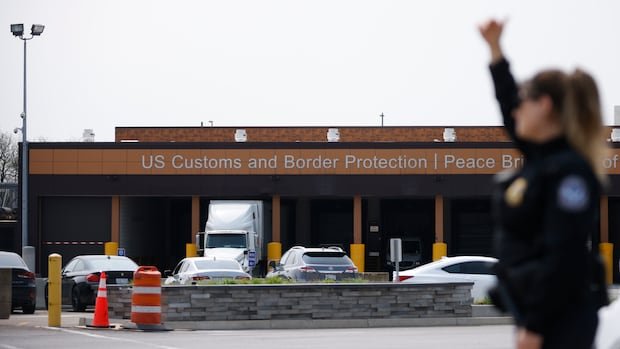U.S. Customs and Border Protection (CBP) recently disclosed updated statistics revealing a significant increase in electronic device inspections at border crossings. During the period of April to June, CBP conducted 14,899 searches of electronic devices, marking a surge of over 21 percent compared to the previous quarter (23 percent higher than the same period the year before). While most of these searches were standard, 1,075 were considered “advanced,” allowing officers to duplicate and review the contents of the devices.
Over the past year, electronic device inspections have risen by 12.6 percent, outpacing the 6.6 percent increase in the total number of travelers entering the United States. Notably, searches of electronic devices belonging to U.S. citizens climbed by nearly 22 percent.
Some immigration attorneys and travelers suggest that these numbers reflect increased scrutiny under the second administration of President Trump. Toronto-based immigration lawyer Heather Segal, experienced in cross-border immigration cases spanning three decades, reported a rise in complaints from Canadian travelers at her office.
According to Segal, clients have recounted being questioned about their political beliefs, including their views on President Donald Trump. She expressed concern over the heightened discretion exercised during border crossings, leading to a sense of apprehension among travelers.
One traveler, Angela Daigle from New Brunswick, shared a distressing encounter during a recent visit to her fiancé in Maine, where she was detained and handcuffed at the Houlton border crossing without clear communication. Her fiancé, David Slagger, a member of the Houlton Band of Maliseet Indians and Woodstock First Nation, believed she was singled out for carrying an excessive amount of clothing for a brief visit.
Slagger himself reported mistreatment at the border, including an incident where a CBP officer made intimidating gestures after questioning his use of a Canadian-issued Indigenous status card, leading to the confiscation of personal belongings. The couple subsequently decided to relocate to New Brunswick permanently.
Experts have also raised concerns about the privacy implications of these intensified electronic device searches at the border. Cybersecurity expert Ritesh Kotak advised travelers on protecting their data, emphasizing the challenges of using burner phones due to potential red flags. Sociologist Nathan Kalman-Lamb shared his experience of being required to surrender his phone during a trip, highlighting the intrusive measures authorized by border officers.
CBP defended the legality and necessity of electronic device searches, citing them as vital tools for identifying threats, combating smuggling, and upholding immigration laws. The agency assured that only a small fraction of travelers undergo such inspections, and officers adhere to stringent protocols. Reasons for secondary inspections range from incomplete documentation to suspicions of immigration violations or random selection.
In light of these developments, Segal recommended that Canadian travelers prepare adequately and understand their rights, especially individuals from communities facing heightened scrutiny. She advised travelers to carry evidence of ties to Canada, such as employer letters or property ownership proof, to streamline the border crossing process.
As cross-border travel patterns shift, some Canadians acknowledge the evolving landscape of entering the U.S., expecting longer waits, increased questioning, and more frequent secondary inspections. This changing environment underscores the need for travelers to adjust their expectations accordingly.


